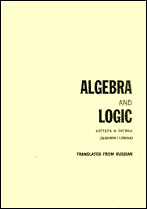|
Toward a sharp Baer–Suzuki theorem for the $\pi$-radical: exceptional groups of small rank
Zh. Wanga, W. Guoa, D. O. Revinb
a Hainan University
b Sobolev Institute of Mathematics, Siberian Branch of the Russian Academy of Sciences, Novosibirsk
Abstract:
Let $\pi$ be a proper subset of the set of all prime numbers. Denote by $r$ the least prime number not in $\pi$, and put $m=r$, if $r=2,3$, and $m=r-1$ if $r\geqslant 5$. We look at the conjecture that a conjugacy class $D$ in a finite group $G$ generates a $\pi$-subgroup in $G$ (or, equivalently, is contained in the $\pi$-radical) iff any $m$ elements from $D$ generate a $\pi$-group. Previously, this conjecture was confirmed for finite groups whose every non-Abelian composition factor is isomorphic to a sporadic, alternating, linear or unitary simple group. Now it is confirmed for groups the list of composition factors of which is added up by exceptional groups of Lie type ${}^2B_2(q)$, ${}^2G_2(q)$, $G_2(q)$, and ${}^3D_4(q)$.
Keywords:
exceptional groups of Lie type, groups ${}^2B_2(q)$, ${}^2G_2(q)$, $G_2(q)$, ${}^3D_4(q)$, $\pi$-radical of group, Baer–Suzuki $\pi$-theorem.
Received: 16.12.2022
Revised: 30.10.2023
Citation:
Zh. Wang, W. Guo, D. O. Revin, “Toward a sharp Baer–Suzuki theorem for the $\pi$-radical: exceptional groups of small rank”, Algebra Logika, 62:1 (2023), 3–32
Linking options:
https://www.mathnet.ru/eng/al2744 https://www.mathnet.ru/eng/al/v62/i1/p3
|


|





 Contact us:
Contact us: Terms of Use
Terms of Use
 Registration to the website
Registration to the website Logotypes
Logotypes








 Citation in format
Citation in format 